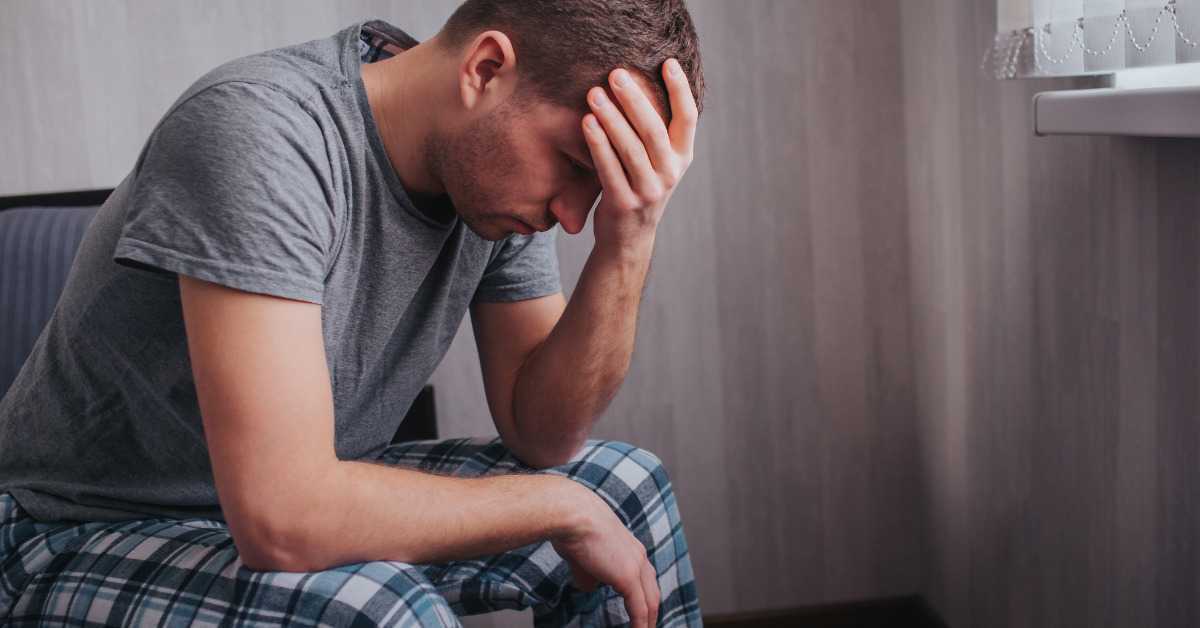While mood swings are often related to teenagers, they can affect more than 20% of adults at some point in their lives. It is essential to know the signs and symptoms so they can get professional help if needed. Therefore, we have explained all about mood swings and how to deal with them in this health blog.
How is Your Mental Health? Click here to talk to a Therapist Online if you need help through Marham!
Mood Swings Symptoms
Mood swings are sudden shifts in a person’s mood, emotion, or behavior that can last from a few hours to days. They can vary in severity from person to person.
Mild mood swings may involve feeling irritable or sad for short periods of time. On the other hand, severe mood swings can be accompanied by depression, thoughts of suicide, and other mental health conditions.
Causes of Mood Swings in Females


Mood swings are a common occurrence in females. They can affect their mood, thoughts, and behaviors. The most common causes of mood swings in females are:
Hormonal Changes
Women experience changes in their hormones during puberty, pregnancy, and menopause. These hormonal changes can make them more sensitive and emotional. The two main hormones that cause mood swings are estrogen and progesterone.
When these hormones fluctuate, they can cause mood swings to occur. These hormonal changes can also be caused by stress which is another major cause of mood swings in females.
Stress
Stress is one of the leading causes of mood swings among women. Women tend to be more emotional than men, and they get stressed out easier in some situations, which might lead to emotional instability.
Family history
Some people are genetically predisposed to have a higher level of sensitivity and emotions than others, making them more susceptible to mood swings when faced with stress or hormonal changes.
Health Issues
Medical conditions such as thyroid problems, depression, or arthritis can also become a reason for having mood swings.
Check out the 5 Best Psychologists In Lahore Treating Common Psychological Disorders
Cause of Mood Swings in Males


The causes of mood swings in males are not always clear, but some factors that have been shown to contribute to these changes in mood include:
Physical Problems
Physical problems include those that affect the body. Some of the physical factors that might cause mood swings to include fatigue, illness, or even low blood sugar levels.
Hormonal Changes
Just like females, men go through hormonal changes as they grow up as well. While the changes are not as drastic as women, they can have an effect on mood. Puberty and other natural changes to hormone levels during a man’s life, such as aging, can cause mood swings.
Emotional Issues
Men can also have emotional problems like stress, anxiety, depression, or anger, which can cause mood swings and mood disorders.
Some other causes of mood swings in males can be sleep deprivation, alcohol consumption, and drug use.
Mental Health Conditions Related to Mood Swings


Mood swings can be one of the symptoms of many mental health disorders. For example:
- Depression
- Intermittent explosive disorder
- Postpartum depression
- Bipolar disorder
- Borderline personality disorder
- Premenstrual dysphoric disorder
- Substance abuse
Read the 10 Tips to Deal with Depression in Pakistan.
How to Control Mood Swings
There are many treatments for mood swings that can help you become stable and reduce the frequency of mood swings. Some of the best ways you can control your mood swings include:
Psychotherapy
Psychotherapy is a form of therapy that helps people with mental health issues like depression and bipolar disorder. It involves talking to a therapist about your thoughts, feelings, and behaviors.


Medication
Doctors can prescribe many types of medication to treat mood swings. These medications can help regulate the person’s emotions and stabilize their moods, so they don’t have as many extreme highs or lows episodes.
Consult a Psychologist for Treatment Now!
If you believe your mood swings are getting out of control and are causing problems in your relationships, you should get professional help. A psychologist can help you find the cause behind your mood swings and how to deal with them. So, why wait to get better?
Can’t Find the App?
| Android | IOS |
|---|---|
  |
  |
FAQs
1. What are examples of mood swings?
Suddenly feeling a change in emotions, going from being happy to sad in a few minutes, and crying for no reason are a few examples of mood swings.
2. Are mood swings part of depression?
Mood swings can be a symptom of depression. However, they are usually present along with other symptoms in people with depression.
3. How do I know if I have mood swings?
If you have sudden changes in your mood or can not understand or keep track of your emotions, it might mean you have mood swings. You can consult a psychologist to get therapy for mood swings.

